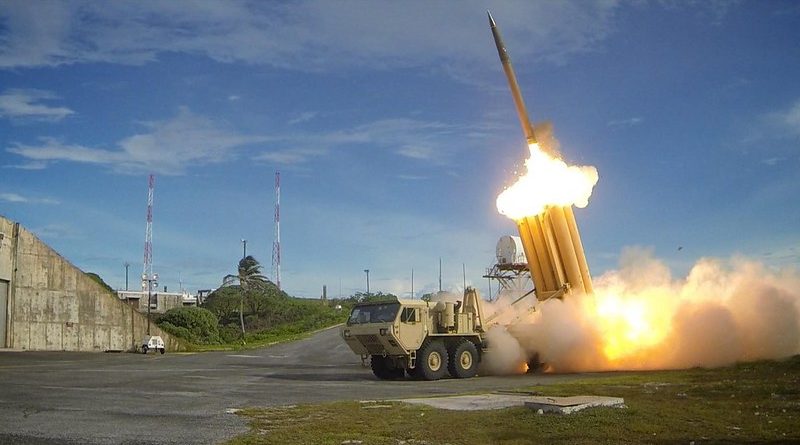Going Ballistic: Iraq Proxy Conflict Intensifies Under Looming Iran WMD Capabilities
Stephanie Miller
Editor in Chief
Patriot missile defense systems are now fully operational at U.S. military bases in al-Asad and Erbil, Iraq, months after Iran launched a massive ballistic missile attack in January, reports Defense News. The U.S. military has been gradually moving the defense systems into the country, a decision compounded by Iran’s continued backing of insurgent attacks against coalition forces.
Prior to the escalation of U.S.–Iran tensions, U.S. military leaders did not believe the systems were needed due to the comparative infrequency of missile strikes in western Iraq. The assassination of IRGC General Qassem Soleimani and Iran-backed militia leader Abu Mahdi al-Muhandis in a U.S. air raid at Baghdad’s international airport on January 3 reignited the conflict between the two states and ushered a series of attacks on U.S., Iraqi, and coalition forces.
The Military Times reports the Patriot missile defense system is designed to intercept ballistic missiles, which chairman of the Joint Chiefs of Staff General Mark Milley believes Iran fired “not only to destroy facilities and equipment but also to kill people.”
Although Iran’s initial ballistic missile strike occurred in January, U.S. officials struggled to negotiate with Iraqi leaders, who according to Al Jazeera requested U.S. troop withdrawal from the country following Soleimani’s assassination.
Deploying the Patriot systems in Iraq comes at a critical moment for U.S. activity in the region. The defense systems have the capability to counter ballistic missile attacks, thus serving as practical deterrent. However, their presence may present a perceived threat to Iranian interests.
Brookings reports that despite the international efforts to prevent Iranian procurement of missile-related materials, equipment, and technology, Iran has managed to acquire the largest and most diverse missile force in the Middle East. This is especially concerning given that ballistic missiles are primarily designed to deliver thermonuclear warheads.
While missile delivery acquisitions are strictly prohibited by United Nations resolution 1540 (2004), Iran continues to bolster its program to provide a nuclear delivery hedge if it decides to acquire nuclear weapons. The presence of the Patriot defense systems in Iraq may kickstart a movement within Iran to further develop nuclear-capable missiles.
This is not the first time that the United States deployed the Patriot system to deter a nuclear Iran. According to the U.S. Naval Institute, the Pentagon sent the defense battery abroad the warship USS Arlington to the Middle East to join the Abraham Lincoln Carrier Strike Group as a hedge against Iran in May 2019. The Pentagon publicly stated that Washington was “ready to defend US forces and interests in the region” the same week Iran announced that it quadrupled the pace at which it enriched low-grade uranium at one nuclear plant, predicting that within weeks it would exceed a stockpile cap set by the nuclear agreement, reports The Washington Post.
On April 8. 2020, the Institute for Science and International Security released a report apparently evidencing that Iran is researching and developing uranium metallurgy “related to building nuclear weapons.” Allegedly named the Shahid Mahallati Uranium Metals Workshop, the site is located near Tehran and has not been disclosed or inspected by the International Atomic Energy Agency. If this report is true, then the Patriot defense system installations in al-Asad and Erbil may be necessary now more than ever. Nonetheless, U.S. officials cannot ignore the role that the defense system installation could play in further escalation. Continuing the movement of sensitive weapons into Iraq to counter a nuclear Iran could instigate an arms race, raising the intensity of the Middle East conflict to potentially nuclear proportions.



